The 'Schiaparelli & Prada: Impossible Conversations' exhibition was unveiled during a dedicated press conference at the Costume Institute's The Metropolitan Museum of Art in New York on 7 May 2012.
Open to the public from May 10 to August 19, the exhibition explores the striking affinities between these two Italian designers from different eras.
Inspired by Miguel Covarrubias’s "Impossible Interviews" for Vanity Fair in the 1930s, curators Harold Koda and Andrew Bolton will originate fictive conversations between these iconic women to suggest new readings of their most innovative work. The Exhibition
In the galleries, iconic ensembles by Schiaparelli and Prada will be presented with videos of simulated conversations between the two designers directed by Baz Luhrmann, focusing on how both women explore similar themes in their work through very different approaches.
"Juxtaposing the work of Elsa Schiaparelli and Miuccia Prada allows us to explore how the past enlightens the present and how the present enlivens the past,” said Harold Koda. “The connection of the historic to the modern highlights the affinities as well as the variances between two women who constantly subverted contemporary notions of taste, beauty, and glamour," added Andrew Bolton.
The exhibition, in the Metropolitan Museum’s first-floor special exhibition galleries, will feature approximately 90 designs and 30 accessories by Elsa Schiaparelli (1890–1973) from the late 1920s to the early 1950s, and by Miuccia Prada from the late 1980s to the present.
Drawn from The Costume Institute’s collection and the Prada Archive, as well as other institutions and private collections, signature objects by both designers will be arranged in seven themed galleries beginning with "Waist Up/Waist Down," which will look at Schiaparelli’s use of decorative detailing as a response to restaurant dressing in the heyday of 1930s café society, while showing Prada’s below-the-waist focus as a symbolic expression of modernity and femininity. An accessories subsection of this gallery called "Neck Up/Knees Down" will showcase Schiaparelli’s hats and Prada’s footwear.

"Ugly Chic" will reveal how both women subvert ideals of beauty and glamour by playing with good and bad taste through color, prints, and textiles. "Hard Chic" will explore the influence of uniforms and menswear to promote a minimal aesthetic that is intended to both deny and enhance femininity. "Naïf Chic" will focus on Schiaparelli and Prada’s adoption of a girlish sensibility to subvert expectations of age-appropriate dressing.
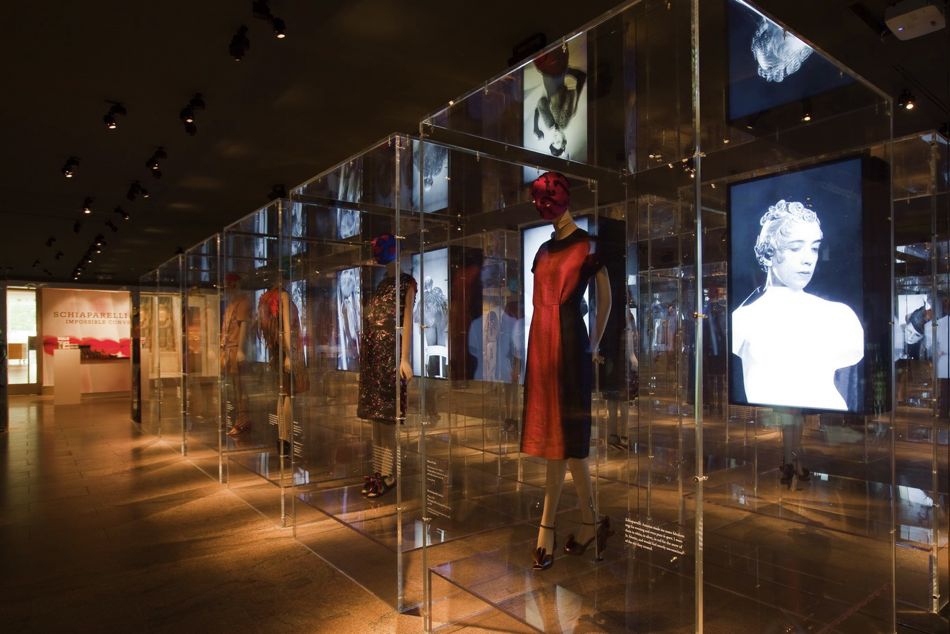
"The Classical Body," which also incorporates "The Pagan Body," explores the designers’ engagement with antiquity through the gaze of the late eighteenth and early-nineteenth centuries. "The Exotic Body" will explore the influence of Eastern cultures through fabrics such as lamé, and silhouettes such as saris and sarongs. "The Surreal Body" in the final gallery will illustrate how both women affect contemporary images of the female body through Surrealistic practices such as displacement, playing with scale, and blurring the boundaries between reality and illusion as well as the natural and the artificial.

Schiaparelli, who worked in Paris from the 1920s until her house closed in 1954, was associated closely with the Surrealist movement and created such iconic pieces as the 'Tear' dress, the 'Shoe' hat, and the 'Bug' necklace. Prada, who holds a degree in political science, took over her family’s Milan-based business in 1978, and focuses on fashion that reflects the eclectic nature of Postmodernism.
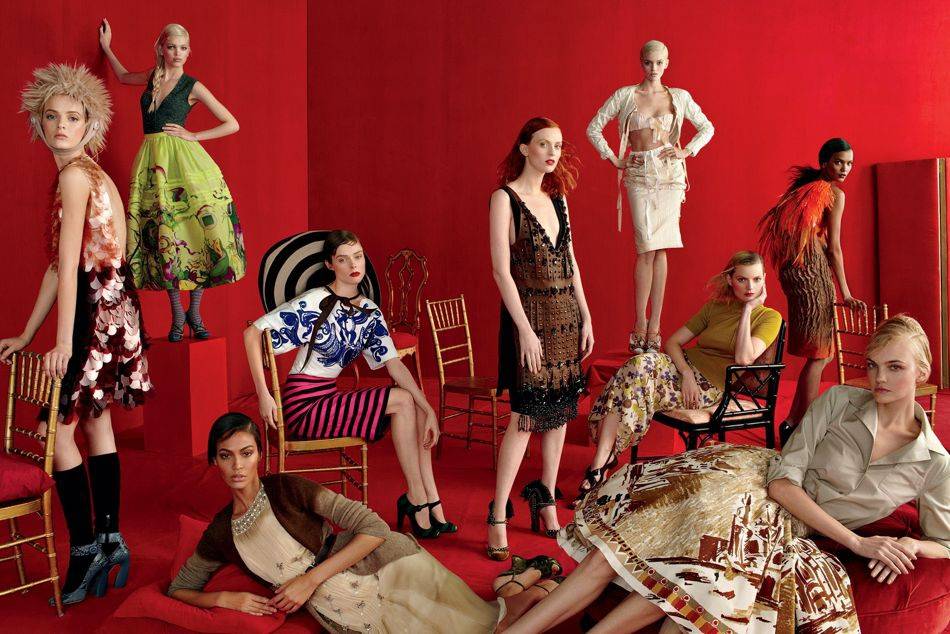
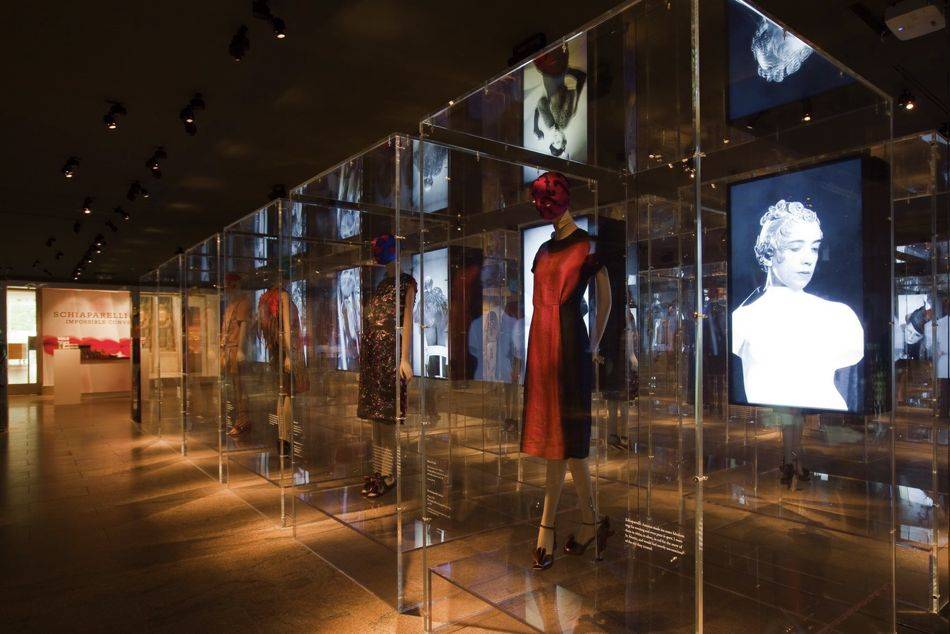
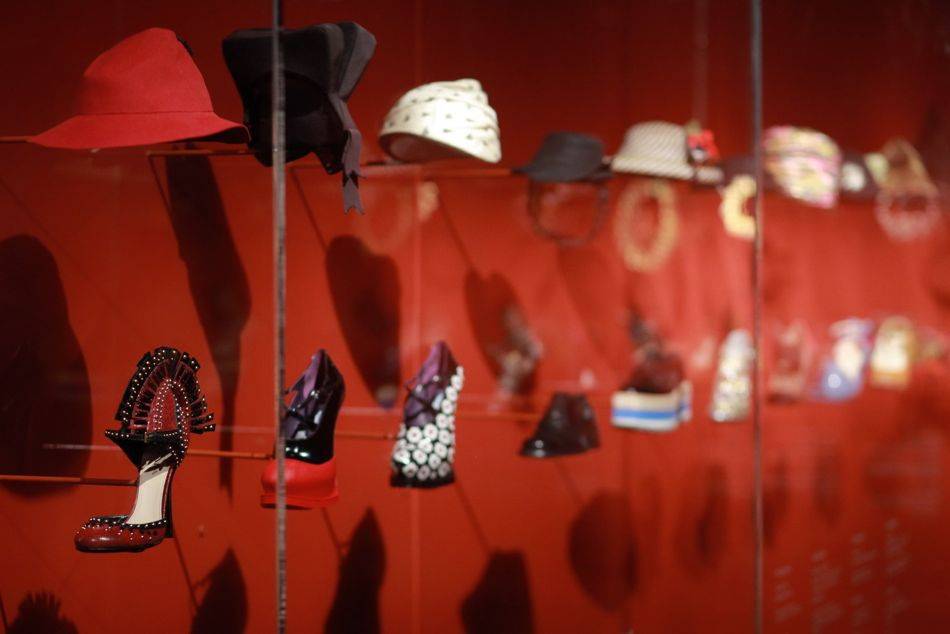
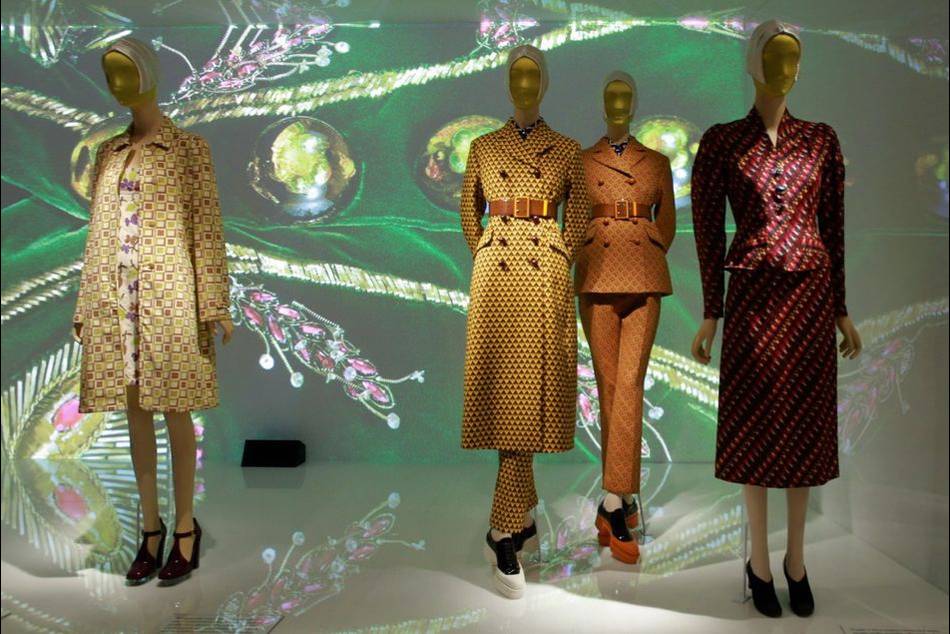











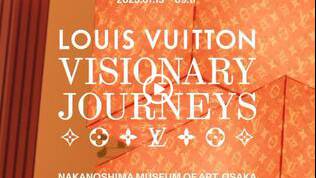



SENATUS Member Comments